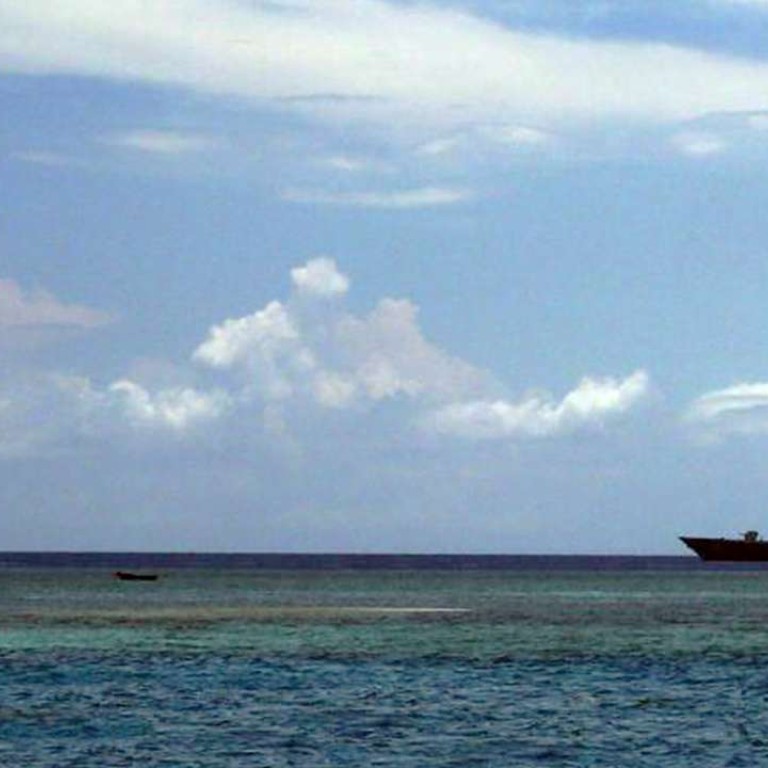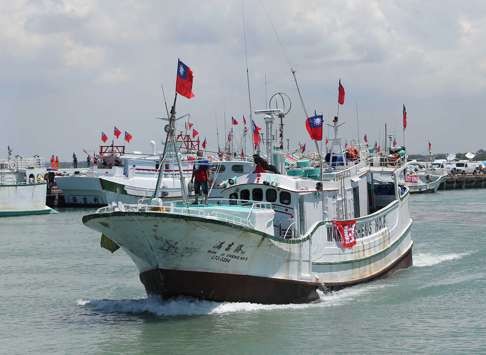
How South China Sea ruling can be a ‘win-win’ for China and the world
Daniel Fung and Charles Morrison say that while Beijing is justifiably dismayed at the verdict, it now has the chance to reset regional maritime ties
China reacted with predictable dismay to the arbitral ruling of the tribunal convened under the UN Convention on the Law of the Sea at the request of the Philippines to resolve its disputes with Beijing in the South China Sea.
China cannot be expected to change its long-standing position on historical rights or its view that the tribunal’s decisions are “null and void”. Nonetheless, in the long-term, depending on how China and other countries react, the ruling could become what President Xi Jinping (習近平) refers to as a “win-win,” for China and the international community.

A UN ruling against China won’t help resolve the South China Sea dispute with the Philippines
Most nations with isolated maritime rocks specifically use them to claim such zones and extended continental shelves. Thus, if the tribunal’s ruling were applied consistently and globally, it should open far more maritime space to China than it would lose.
Most relevant to Chinese interests are Japan’s EEZ claims in the Western Pacific. One area, equivalent to a fifth of the whole South China Sea, is based on one isolated feature – Okinotori-shima, a lagoon with three rocks. Japan has been pouring concrete over them to help maintain their elevation over sea level (there were once five) as well as cultivating coral to transplant to the area.
Beijing and Taipei have protested about these EEZ claims on the basis that Okinotori-shima is not an island. In April, Japan detained a Taiwanese fishing boat in the zone, touching off a spat. If the Okinotori-shima claims were brought to arbitration under the convention on the law of the sea and adjudicated consistently with the recent arbitral decision, Japan could become the biggest loser resulting from the Philippine case precedent.
China is undoubtedly a great power, but cannot really achieve superpower status if it is mired in petty disputes with smaller neighbours
Moreover, another huge Japanese claim in the Pacific is anchored by Minamitori-shima, larger than Taiping Island, the largest in the Spratlys group, but also now questionable as the basis for an EEZ. As China’s maritime interests are global, it enjoys similar interests to the US in challenging excessive maritime claims but, to do this credibly, it needs to maintain a consistent law of the sea position.
A second potential benefit of the arbitration, as optimists point out, is that China has an opportunity to use it to reset its maritime relations with its neighbours, even while maintaining its position on the arbitration. China is undoubtedly a great power, but cannot really achieve superpower status if it is mired in petty disputes with smaller neighbours.
Because China’s maritime claims in the South China Sea conflict with the economic zone claims of the Philippines, Vietnam, Brunei, Malaysia and Indonesia, as well as these countries’ historical interests, it has hurt relations with an important group of emerging countries that are otherwise expanding their economic and people-to-people relationships with China. With the arbitration over and a new government in place, Manila has expressed an interest in constructive bilateral talks, even dispatching former president Fidel Ramos to Hong Kong on a recent fence-mending exercise.

Trouble in Taiwan: Hague ruling on Taiping Island gives Tsai her biggest headache
Third, as long as contested maritime features remain unsettled, resource use and environmental cooperation in the South China Sea between China and its Asean neighbours are fundamentally hamstrung. About 600 million people live around this shallow, heavily used basin. The fisheries, sea turtles and coral require protection, but there are no cooperative regimes for such purposes.
In the modern era, China has attained considerable success in settling 12 of its 14 land boundaries, and part of its maritime boundary with Vietnam. These countries now include some of China’s most significant trading partners.
China is clearly interested in lowering the temperature of international debate on the South China Sea. It would serve well not just Chinese but also Asean, US and global interests and be a true 21st-century win-win if not just China and its neighbours but also a G2 formed by China and the US could find creative ways to move beyond the recent ruling and reach a comprehensive global settlement of longstanding disputes in these crucial but troubled waters.
Daniel R. Fung is president of the International Law Association, Hong Kong chapter, and founding president of the Asia-Pacific Institute of International Law. Charles E. Morrison is president of the East-West Centre
